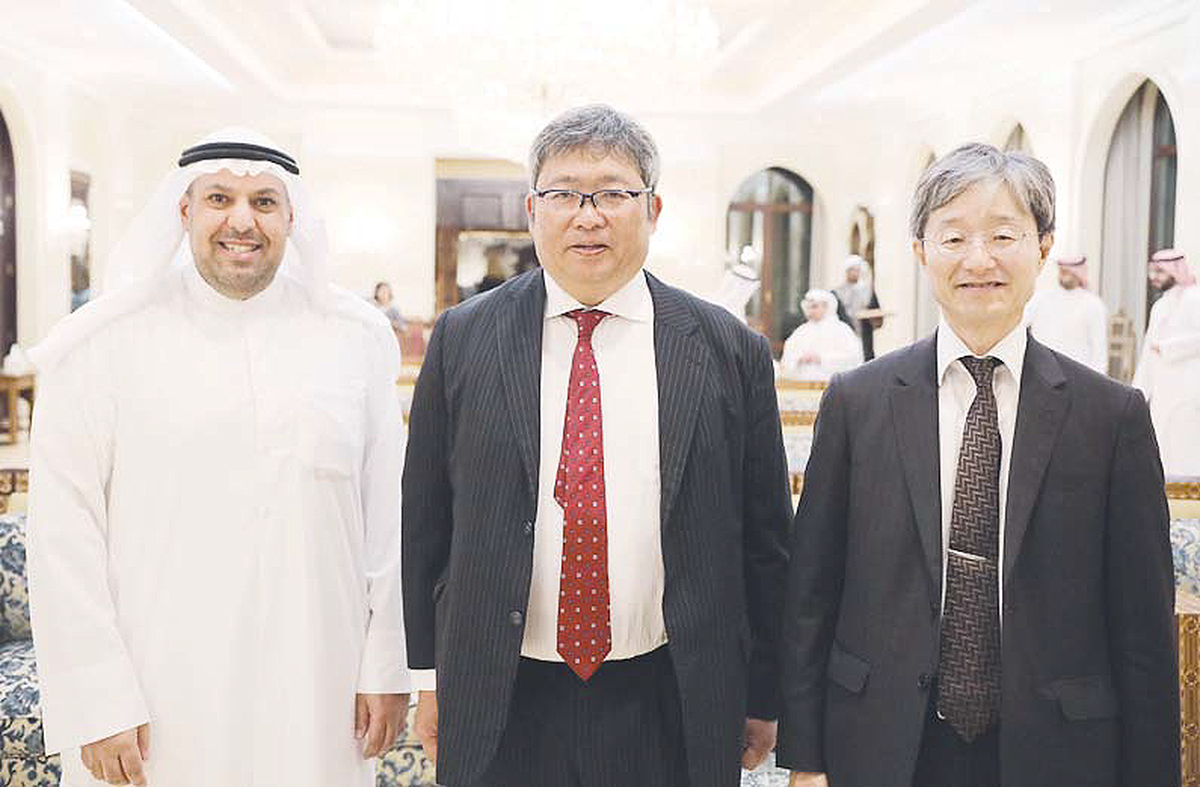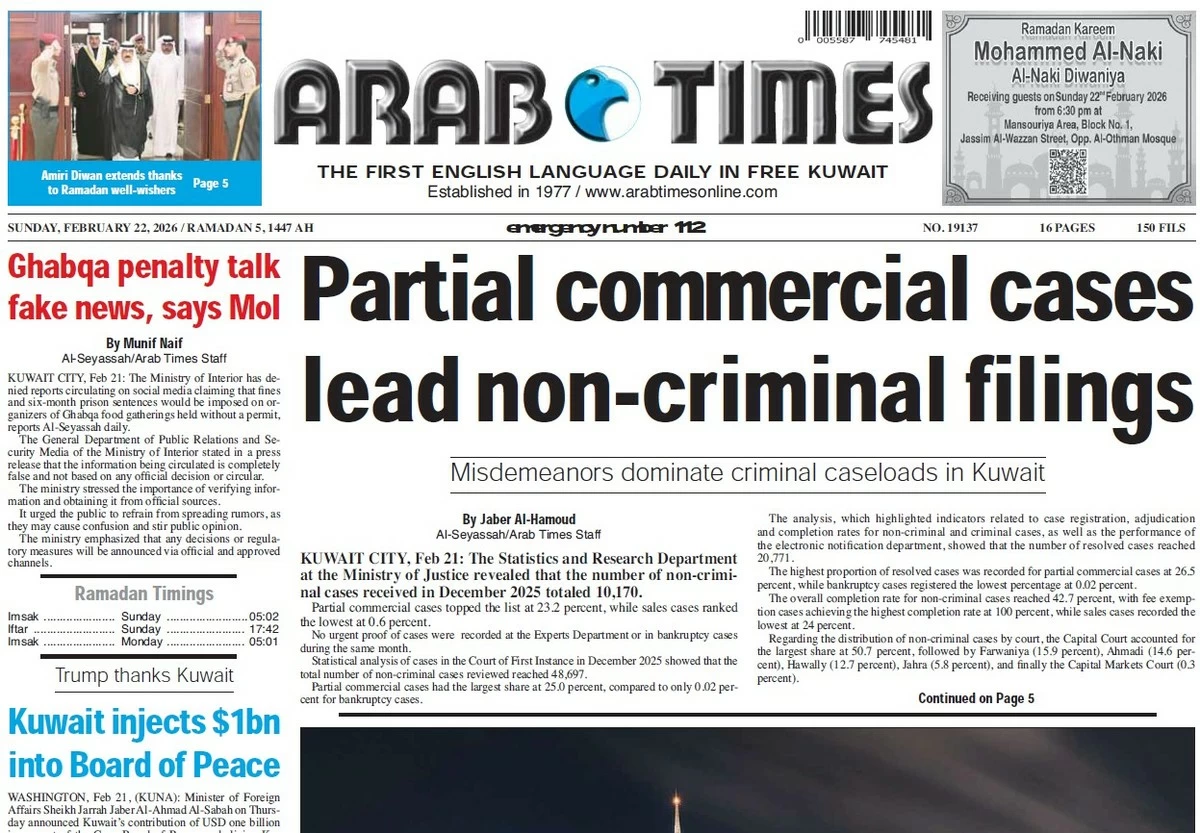18/08/2025
18/08/2025

KUWAIT CITY, Aug 18: Reconnaissance Research, in collaboration with the Embassy of Japan in Kuwait, welcomed Professor Shinoda Kunihiko from the National Graduate Institute for Policy Studies (GRIPS) in Tokyo for a special lecture titled “President Trump’s Economic Diplomacy and its Impact on the Indo-Pacific Region” on August 13th. The professor traveled from Tokyo specifically for this event, which drew an audience of over 60 distinguished attendees, including academics, policy researchers, PhD scholars, business leaders, and diplomats. Professor Shinoda underscored that Japan’s ties with the Gulf Cooperation Council (GCC) have reached a pivotal moment, pointing to the ongoing negotiations for Japan–GCC Economic Partnership Agreement (EPA) as “a framework that could redefine economic cooperation beyond energy, opening doors in technology, water security, and the clean energy transition.” He also addressed U.S. concerns over unfair trade practices, the limitations of the WTO’s dispute resolution mechanisms, and the Trump administration’s energy and environmental policy shifts.
Highlighting Kuwait specifically, Professor Shinoda praised its role as a ‘reliable and stable energy partner’ and identified opportunities for Kuwait to expand cooperation with Japan in clean energy, infrastructure modernization, and knowledge-based industries. He noted that the GCC’s demographic trends — including a fast-growing youth population — make it an ideal partner for Japanese expertise in innovation, employment generation, and advanced infrastructure. He further emphasized that ‘Japan’s historically positive relations with Gulf countries are a strategic asset,’ adding that both sides should seize this moment to align long-term visions, particularly in green hydrogen, desalination, and high-tech industrial projects. Professor Shinoda also cautioned that regional geopolitical shifts — from Iran–Israel tensions to evolving energy market dynamics — will require Japan and the GCC to deepen strategic dialogues to safeguard stability while expanding economic cooperation. H.E. Mr. Mukai Kenichiro, Ambassador of Japan to the State of Kuwait, said: “Professor Shinoda is a renowned expert in Asian economic affairs, regional economic integration, and Indo-Pacific cooperation. He has also been deeply involved in multilateral negotiations and the development of Free Trade Agreement (FTA) strategies, including the Regional Comprehensive Economic Partnership (RCEP) between 15 Asian countries, including Japan.
Today’s topic is very timely and offers an important perspective from which we can explore how the economic structure of the Indo-Pacific is evolving in today’s complex geopolitical environment. I hope this will serve as a valuable opportunity for all of us to gain new insights into these changes.” Professor Shinoda Kunihiko said: “Middle Eastern countries are working not only to maximize the value of their existing oil and gas assets, but also to shift toward growth models that don’t rely on oil. For Japan, it’s important to maintain and strengthen ties with these countries as stable suppliers of oil and gas, while also promoting cooperation on decarbonization and the energy transition. It’s also key to move forward with new businesses that address social issues like the environment and healthcare.
The Japan–Kuwait bilateral cooperation fits right in with this approach.” Abdulaziz Al-Anjeri, Founder and CEO of Reconnaissance Research, said: “Since our establishment in 2019, Reconnaissance Research has been committed to serving as a platform where individuals of expertise and merit can share their insights with knowledge-seeking professionals.” He added: “Earlier this year, I had the privilege of visiting Tokyo and meeting with more than nine Japanese think tanks, leading academics, and current and former diplomats to explore ways of strengthening people-to-people engagement between Kuwait and Japan. Hosting Professor Shinoda reflects that mission in action — paving the way for more Kuwaiti researchers to visit Japan and more Japanese voices to contribute to Kuwait’s intellectual landscape.”


